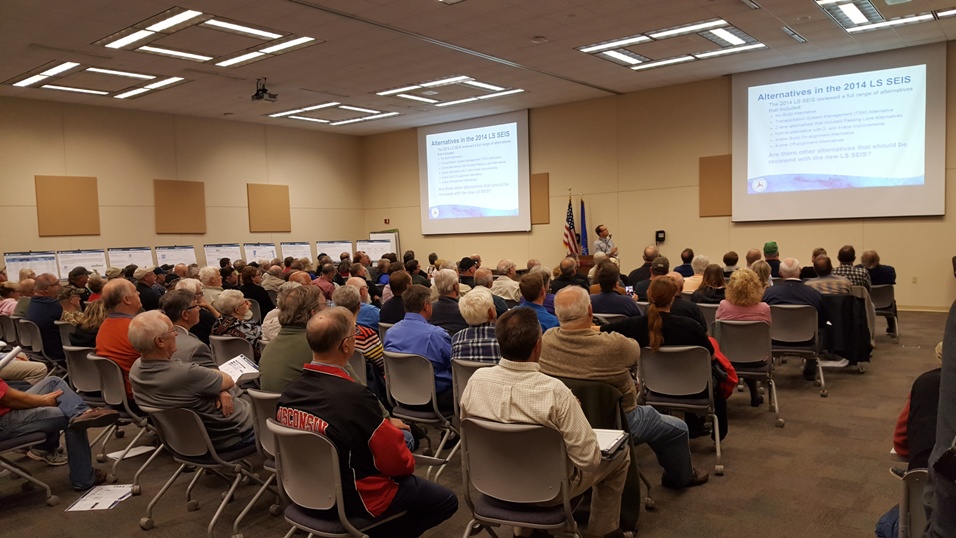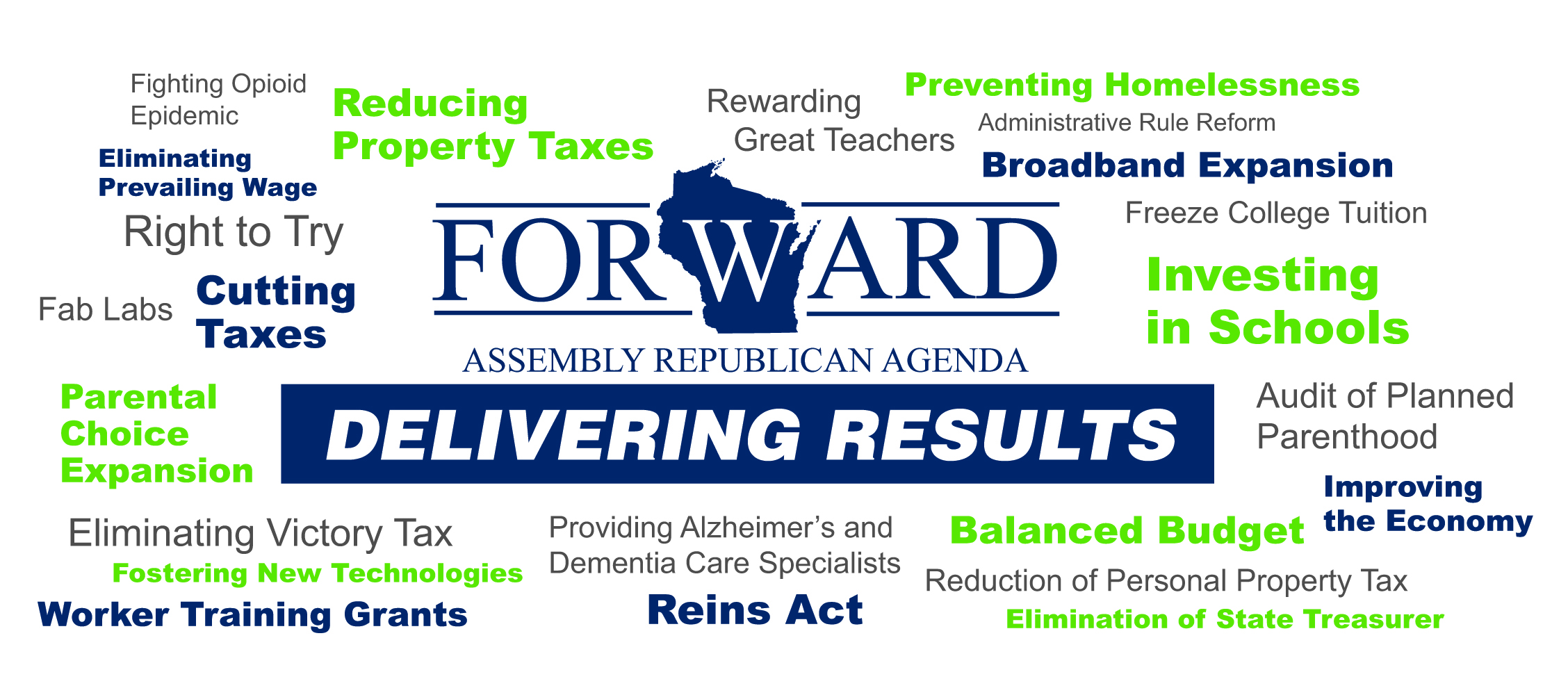|

A strong crowd of Sheboygan and Fond du
Lac County residents made their voices heard last week at a public
Department of Transportation briefing on the State Highway 23 expansion
project. There is more that you can do to help see this
project through to completion!
Highway 23 (between Fond du Lac and
Plymouth) may not legally be expanded to four lanes without federal
permits. To re-obtain the federal permits that Wisconsin once
held, WisDOT is writing a new Limited Scope Supplemental Environmental
Impact Statement (LS SEIS), which is intended to address the issues that
led the federal courts to throw out our earlier work. We expect
that a new draft statement will be ready in early 2018; a public hearing
will occur in the spring; and a final new statement should be ready by
summer 2018. Meanwhile, your state legislators took special steps
several weeks ago to set aside enough state money in the state budget to
ensure that these and other necessary short-term actions are fully
funded.
Now is an appropriate
time for the general public to offer (respectful) comments to WisDOT in
support of the project! Public
input regarding highway safety, economic impact, etc. can influence the
analysis that WisDOT writes as part of the new LS SEIS. Public
comments are welcomed by WisDOT Project Manager Bryan Lipke via e-mail
at bryan.lipke@dot.wi.gov
or, alternately, you may
click here to print and mail in a postage-prepaid comment sheet.
Members of the public may also find it helpful to regularly keep an eye
on WisDOT's State Highway 23
project website for updates, maps, etc.
As always, I encourage you to follow
my updates on
social media or contact
my office directly with your questions. Best wishes on your
weekend!

Steadily Moving Wisconsin Forward

A year ago, my colleagues and I released a
30-page report containing 95 specific ideas for improving Wisconsin's
future. If anybody tries to convince you that Madison is gridlocked or
that your state legislature can't agree on any real reforms, don't be
deceived!
Already in 2017, the Assembly has achieved
(in some form) 47 of the 95 specific ideas we proposed, and at least another
15 of them are currently circulating for debate. A total of 547
Assembly bills have been formally introduced, which is more bills than had
been introduced at this point in any of the past three legislative sessions.
Better yet, in my opinion, is that of the 184 ideas that the Assembly has
voted to pass so far this year, 165 of them (that's 90 percent) have
bipartisan support. Although we surely don't always agree, your state
government really is working for you!
That's
a Win-Win-Win-Win
Did you know?
-
Property taxes on a median-value home in
Wisconsin averaged $2,963 in 2010. In 2018, property taxes will
average $2,825, which is not quite a 5 percent decrease.
Keep in mind that the U.S. dollar has experienced an inflationary
increase of about 12 percent since 2010.
-
The media largely ignored the great news
this week that Wisconsin ended Fiscal Year 2017 with a $579 million
surplus, which is $112 million better than we had even budgeted.
(Goodness knows that it would have been front-page news everywhere if
we'd come up $112 million short of what we projected instead.) It's further proof that
our pro-growth, tax-reducing, regulation-reforming policies are adding
up to long-term success!
-
Several weeks ago, I shared the important
money-saving news that Moody's Investors Service had
increased Wisconsin's general obligation bond rating to Aa1, which
is just one step below the highest possible rating. On top of that
news, this week we learned that the Kroll Bond Rating Agency (KBRA)
has done
likewise, upgrading our state from AA to AA+. These upgrades
are extremely important because they reduce the cost of taxpayer-funded
borrowing that occurs as a normal part of government operations,
transportation and infrastructure projects, etc. According to KBRA,
"The rating reflects that in recent years, Wisconsin has consistently
and accurately budgeted within its means and has prioritized a
combination of tax, spending and debt restraints that have improved the
state's reserves and liquidity." I couldn't have said it better if
I wanted to!
|
|
. |



 |
|

